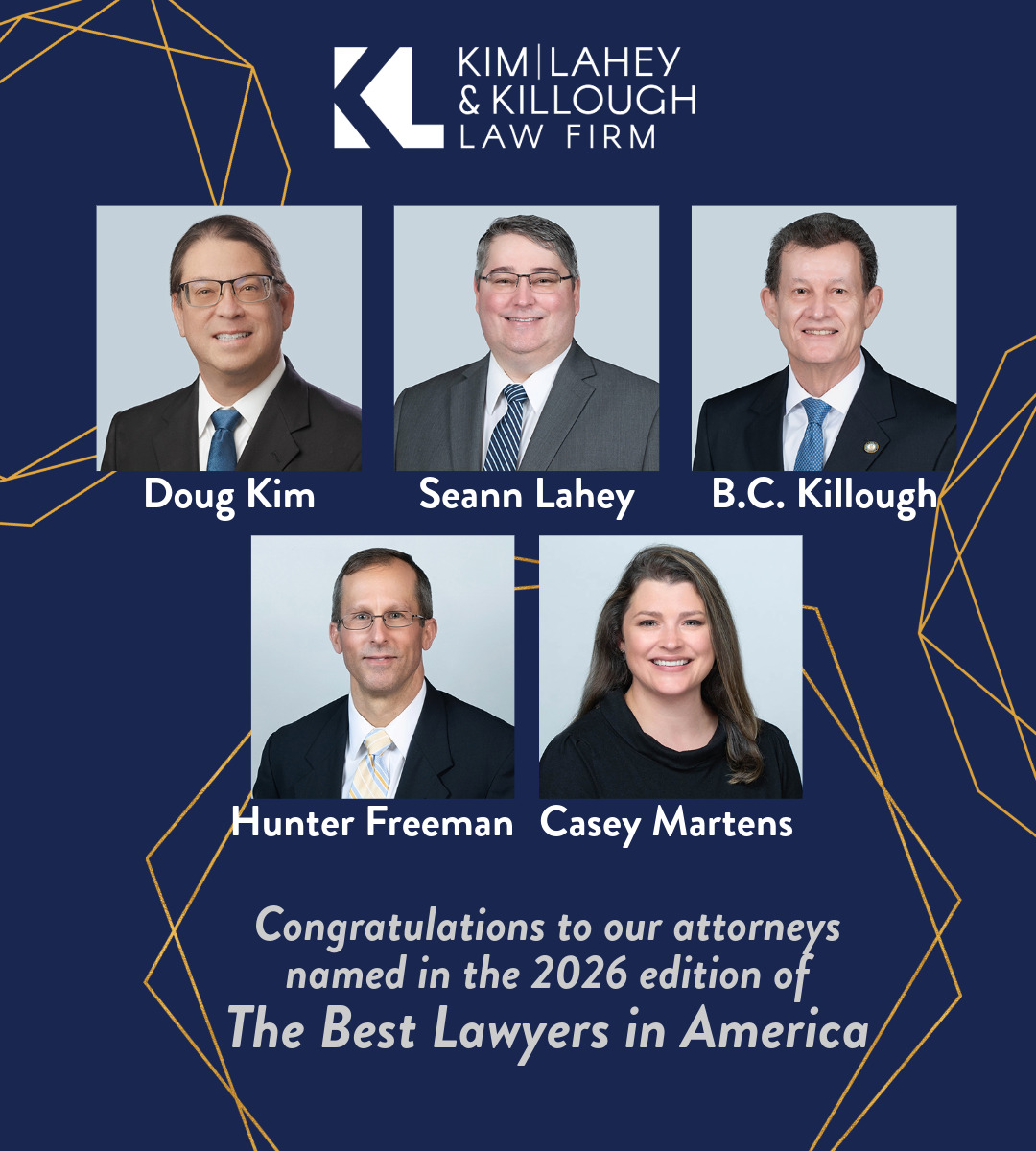
Kim, Lahey Killough attorneys listed 2026 Best Lawyers
Kim, Lahey & Killough attorneys listed in 2026 Best Lawyers
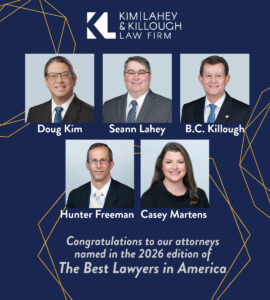 Kim, Lahey & Killough Law Firm is honored to announce that five of the firm attorneys are listed in The Best Lawyers in America® 2026 edition:
Kim, Lahey & Killough Law Firm is honored to announce that five of the firm attorneys are listed in The Best Lawyers in America® 2026 edition:
In the firm’s Greenville home office, firm founder Douglas W. Kim is recognized for his work in
- Litigation – Intellectual Property
- Litigation – Patent
- Patent Law (Lawyer of the Year, 2019)
- Trade Secrets Law
- Trademark Law (Lawyer of the Year, 2022)
Firm co-founder, Seann Lahey is listed for his work in:
- Patent Law
- Trademark Law
And Greenville patent attorney Hunter S. Freeman is commended for his work in:
- Commercial Litigation
- Copyright Law
- Litigation – Intellectual Property
- Litigation – Patent
- Trademark Law
In the firm’s Charleston office, Charleston patent attorney B. C. Killough celebrates his 15th year on the Best Lawyers list for his work in:
- Business Organizations (including LLCs and Partnerships)
- Corporate Law (Lawyer of the Year, 2015)
- Litigation – Intellectual Property
- Patent Law
- Trademark Law
Licensed in South Carolina, North Carolina and Georgia, Casey Martens heads up the firm’s Brevard, NC office. She is recognized by Best Lawyers in the Greenville, SC metro as a 2026 Best Lawyers One to Watch in America in the areas of:
- Employee Benefits Law
- Intellectual Property Law
- Labor and Employment Law – Employee
- Labor and Employment Law – Management
- Litigation – Labor and Employment
Since 1981, The Best Lawyers in America® and Best Lawyers: Ones to Watch® in America has compiled and reviewed peer evaluations from across the United States to identify an annual list of honorees. This year, over 31 million evaluations were analyzed, including a record-breaking 4.8 million new responses.
About Kim, Lahey & Killough
With offices in Greenville and Charleston, SC and Brevard, NC, the Kim, Lahey & Killough Law Firm is devoted to helping clients establish, enforce, and leverage their intellectual property rights from the Upstate, to the Lowcountry to across the globe.

Kim, Lahey & Killough Listed in 2025 Best Law Firms
 Kim, Lahey & Killough Law Firm has been named in the 2025 edition of Best Law Firms® in Greenville and Charleston. Firms included in the 2025 Best Law Firms list are recognized for professional excellence with consistently impressive ratings from clients and peers. Each year since its formation, Kim, Lahey & Killough Law Firm has received this esteemed recognition.
Kim, Lahey & Killough Law Firm has been named in the 2025 edition of Best Law Firms® in Greenville and Charleston. Firms included in the 2025 Best Law Firms list are recognized for professional excellence with consistently impressive ratings from clients and peers. Each year since its formation, Kim, Lahey & Killough Law Firm has received this esteemed recognition.
Ranked firms, presented in three tiers, are listed on a national and regional-based scale. Firms that receive a tier designation reflect the highest level of respect a firm can earn among other leading lawyers and clients in the same communities and practice areas.
The Kim, Lahey & Killough Charleston office is recognized in the areas of Trademark Law, Intellectual Property Litigation, Corporate Law and Business Organizations (LLCs and Partnerships).
In the Greenville, SC market, the firm is recognized in the areas of Trademark Law, Copyright Law, Intellectual Property Litigation, Patent Law and Patent Litigation.
With offices in Greenville and Charleston, SC, and Brevard, NC, Kim, Lahey & Killough Law Firm is devoted to helping clients establish, enforce, and leverage their intellectual property rights from the Upstate to the Lowcountry to across the globe. The firm serves the manufacturing, software, energy, finance, hospitality, tourism, defense, agriculture and technology industries as well as universities. Key practice areas include intellectual property, business and commercial litigation, mediation, employment, corporate and business matters including formation and structure, mergers and acquisitions, contracts, and cybersecurity.
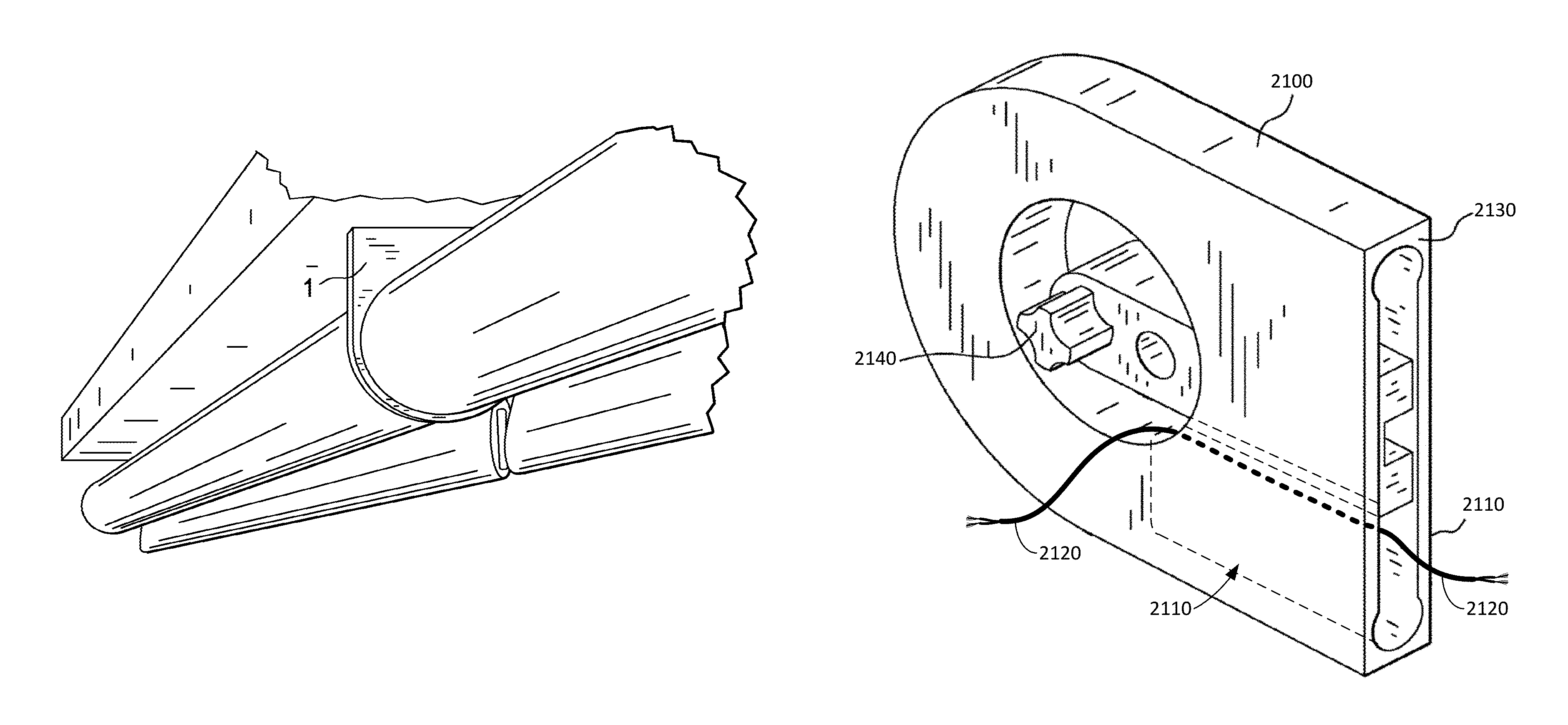
GeigTech East Bay awarded $34.6 million in patent infringement case
South Carolina company GeigTech East Bay, LLC, awarded $34.6 million in damages in patent infringement case against Lutron Electronics
South Carolina company GeigTech East Bay, a maker of modern window shades, has been awarded $34.6 million dollar in damages by a New York Federal jury in a case against Lutron Electronics Co. for infringing upon a window shade patent obtained by Greenville patent attorney Douglas Kim for GeigTech East Bay.
The case involved GeigTech’s U.S. patent No. 10,294,717, for a “shade bracket with concealed wiring,” which was obtained by registered patent attorney Douglas Kim of Kim, Lahey & Killough law firm and granted on 05/21/2019.
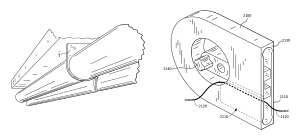 With patent in hand, Geigtech East Bay, LLC filed a federal patent infringement complaint (with trade dress allegations) against Lutron Electronics Co., Inc. alleging that, among other things, patent infringement and trade dress infringement. One of the tactics used by Lutron was to try to invalidate the patent. However, the patent written by Kim withstood two challenges in the United States Patent Trial and Appeal Board as well as in the jury trial which concluded last week. On March 12, 2024, the jury returned a verdict stating that Lutron had infringed on GeigTech’s ‘717 patent on window shade brackets and awarded $34.6 in damages.
With patent in hand, Geigtech East Bay, LLC filed a federal patent infringement complaint (with trade dress allegations) against Lutron Electronics Co., Inc. alleging that, among other things, patent infringement and trade dress infringement. One of the tactics used by Lutron was to try to invalidate the patent. However, the patent written by Kim withstood two challenges in the United States Patent Trial and Appeal Board as well as in the jury trial which concluded last week. On March 12, 2024, the jury returned a verdict stating that Lutron had infringed on GeigTech’s ‘717 patent on window shade brackets and awarded $34.6 in damages.
According to the jury verdict form filed March 15th, when asked “Has GeigTech shown by a preponderance of evidence that any portion of the accused statement is true?” the form is marked “Yes” with a notation that “Lutron opted to poach (GeigTech’s) patented designs and intellectual property to try and remain competitive in a segment of the market that (GeigTech) cornered.”
As the finding of infringement was willful, GeigTech can ask the judge to triple the damages.
“This verdict underscores the importance of protecting intellectual property rights for businesses of all sizes,” commented attorney Kim. “We are thrilled that this patent has withstood numerous challenges, scrutiny and legal maneuvers and that our client has emerged victorious.”
The case was tried by Gary Sorden and his trial team in the firm Cole Schotz P.C.
Lutron was represented by Scott W. Breedlove Carter Arnett PLLC and his defense team.
The patent was originally filed by Richard J. McKenna of Foley & Lardner LLP and taken over by Douglas Kim of the Kim Lahey & Killough Law Firm.
Founded in Charleston, SC in 2011, James Geiger designed a revolutionary shading system: a window shade system with no visible wires or screws. His shading systems company J Geiger is known for its high-tech, minimalist, clean and modern shading systems, His business, J Geiger, provides superior shading systems to both high end home and commercial properties. J Geiger products have been featured in numerous publications including Forbes, dwell, The Architect’s Newspaper, Window Fashion Vision, This Old House, Gray, Aspen Peak, and BD West, where their products won Best in Show in 2019. For more information visit https://jgeigershading.com/ .
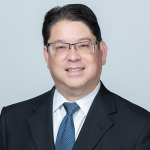 Kim, Lahey & Killough founding attorney Doug Kim began his professional career as a computer programmer and software engineer after his graduation from Davidson College. His intellectual property career began in 1998 when he combined his business experience with his legal education and was involved with enforcing a client’s patent against multiple infringers. Kim has created a well-rounded Intellectual property practice that provides client centric legal solutions and strategies tailored to each client from multinational corporations to start-ups.
Kim, Lahey & Killough founding attorney Doug Kim began his professional career as a computer programmer and software engineer after his graduation from Davidson College. His intellectual property career began in 1998 when he combined his business experience with his legal education and was involved with enforcing a client’s patent against multiple infringers. Kim has created a well-rounded Intellectual property practice that provides client centric legal solutions and strategies tailored to each client from multinational corporations to start-ups.
With offices in Greenville and Charleston, SC and Brevard, NC, the Kim, Lahey & Killough Law Firm is devoted to helping clients achieve their business goals and establish, enforce, and leverage their intellectual property rights from the Upstate, to the Lowcountry to across the globe.

Kim, Lahey & Killough 2023 SC Super Lawyers
 Kim, Lahey & Killough attorneys listed in
Kim, Lahey & Killough attorneys listed in
2023 South Carolina Super Lawyers
Kim, Lahey & Killough attorneys Doug Kim, Seann Lahey, and B.C. Killough have been named in the 2023 South Carolina Super Lawyers list as top-rated intellectual property attorneys and Casey Martens has been named in the 2023 South Carolina Rising Stars list as a top-rated employment and labor attorney in the Greenville and Charleston markets.
Each year, no more than five percent of the lawyers in the state are selected by the research team at Super Lawyers to receive the honor of inclusion on the Super Lawyers list and no more than 2.5 percent of the lawyers in the state are selected to be listed as Rising Stars.
Greenville patent attorney Doug Kim, founder of Kim, Lahey & Killough, has been included in the South Carolina Super Lawyers list annually since 2017. Kim concentrates his law practice in the areas of brand protection, invention protection, licensing, contracts, company formation, Internet and domain name, data security and privacy, patents, trademarks, copyright, technology transfer, IP litigation, trade secrets, Internet & domain name pursuits, business disputes & resolutions. In addition to Super Lawyers, Doug Kim has previously been named the to the Greenville, SC Best Lawyers® list, named the Trademark Lawyer of The Year, the Best Lawyers® Patent Lawyer of The Year, an IP Star by Managing Intellectual Property magazine and a Legal Elite of the Upstate by Greenville Business Magazine.
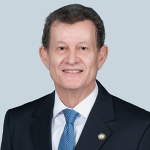 Charleston patent attorney B.C. Killough adds his ninth year as a named attorney to the South Carolina Super Lawyers list in the area of intellectual property law. Killough’s practice areas include brand protection, invention protection, licensing, contracts, company formation, Internet and domain name, data security and privacy, patents, trademarks, copyright, technology transfer, IP litigation, trade secrets, Internet & domain name pursuits, business disputes & resolutions, commercial transactions, and mediations of intellectual property and commercial disputes. Killough has been honored as a Senior Fellow by the Litigation Counsel of America, holds an AV preeminent rating with Martindale-Hubbell, was previously named the Best Lawyers Corporate Lawyer of the Year for the Charleston market and has been recognized by Charleston Business Magazine as a Legal Elite in the area of Intellectual Property and Innovation.
Charleston patent attorney B.C. Killough adds his ninth year as a named attorney to the South Carolina Super Lawyers list in the area of intellectual property law. Killough’s practice areas include brand protection, invention protection, licensing, contracts, company formation, Internet and domain name, data security and privacy, patents, trademarks, copyright, technology transfer, IP litigation, trade secrets, Internet & domain name pursuits, business disputes & resolutions, commercial transactions, and mediations of intellectual property and commercial disputes. Killough has been honored as a Senior Fellow by the Litigation Counsel of America, holds an AV preeminent rating with Martindale-Hubbell, was previously named the Best Lawyers Corporate Lawyer of the Year for the Charleston market and has been recognized by Charleston Business Magazine as a Legal Elite in the area of Intellectual Property and Innovation.
 Greenville patent attorney Seann Lahey joins colleagues Doug Kim and B.C. Killough on the Super Lawyers list for their work in intellectual property matters. Seann Lahey’s intellectual property law practice regularly includes work in trademarks, copyrights, trade secrets licensing matters, and he has extensive experience dealing with international and U.S. patent prosecution. He has also been recognized by Greenville Business Magazine as a Legal Elite of the Upstate for his work in intellectual property law.
Greenville patent attorney Seann Lahey joins colleagues Doug Kim and B.C. Killough on the Super Lawyers list for their work in intellectual property matters. Seann Lahey’s intellectual property law practice regularly includes work in trademarks, copyrights, trade secrets licensing matters, and he has extensive experience dealing with international and U.S. patent prosecution. He has also been recognized by Greenville Business Magazine as a Legal Elite of the Upstate for his work in intellectual property law.
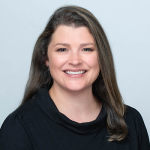 Super Lawyers South Carolina Rising Star Casey Martens practices employment and business law in both the Greenville SC and Brevard NC offices of Kim, Lahey & Killough. Her law practice focuses in the areas of business disputes and litigation, state and federal employment law, corporate formation, drafting and enforcement of contracts, business disputes involving interference with client relations, individual and business defamation, collections, and enforcement of non-compete agreements. She has also been previously recognized by Greenville Business Magazine as a Legal Elite of the Upstate.
Super Lawyers South Carolina Rising Star Casey Martens practices employment and business law in both the Greenville SC and Brevard NC offices of Kim, Lahey & Killough. Her law practice focuses in the areas of business disputes and litigation, state and federal employment law, corporate formation, drafting and enforcement of contracts, business disputes involving interference with client relations, individual and business defamation, collections, and enforcement of non-compete agreements. She has also been previously recognized by Greenville Business Magazine as a Legal Elite of the Upstate.
About Super Lawyers
Super Lawyers, part of Thomson Reuters, is a rating service of outstanding lawyers from more than 70 practice areas who have attained a high degree of peer recognition and professional achievement. The annual selections are made using a patented multiphase process that includes a statewide survey of lawyers, an independent research evaluation of candidates and peer reviews by practice area.
About Kim, Lahey & Killough
With offices in Greenville and Charleston, SC and Brevard, NC, the Kim, Lahey & Killough Law Firm is devoted to helping clients establish, enforce, and leverage their intellectual property rights from the Upstate, to the Lowcountry to across the globe.
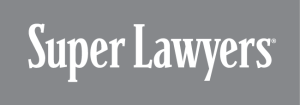
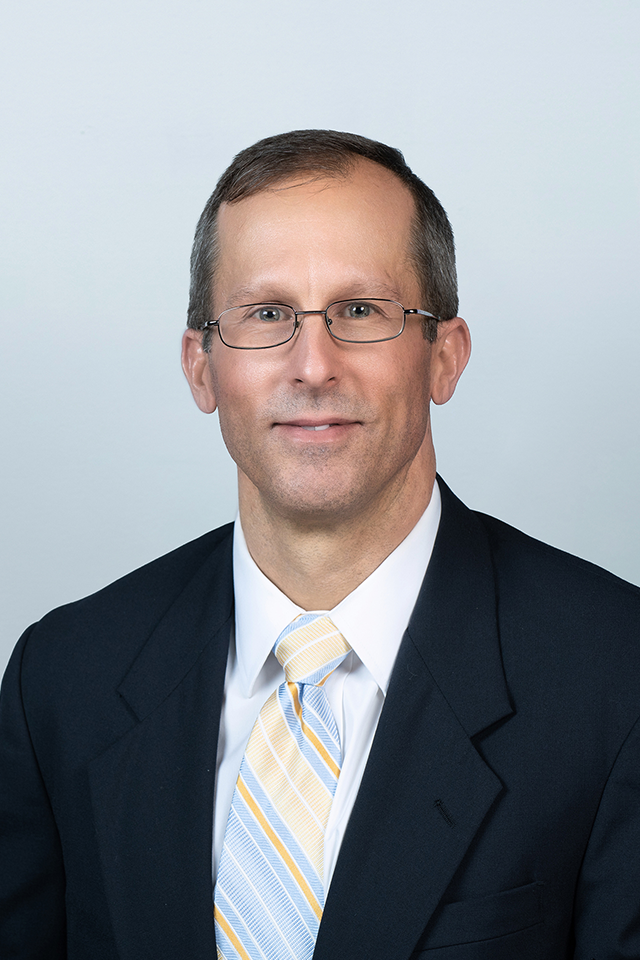
Hunter Freeman joins Kim, Lahey & Killough
 Patent Attorney Hunter Freeman joins longtime colleagues at
Patent Attorney Hunter Freeman joins longtime colleagues at
Kim, Lahey & Killough
Kim, Lahey & Killough Law Firm is pleased to announce the addition of patent attorney Hunter Freeman to the firm’s Greenville, SC, office. Freeman’s law practice focuses primarily in the areas of patents, trademarks, trade secrets, contracts, licensing, copyrights, litigation and mediation.
Previously, Freeman worked with firm co-founders Doug Kim and Seann Lahey for 15 years at a large South Carolina firm. Since those early years, each has grown in knowledge, experience and emphasis on the intellectual property needs of South Carolina. Additionally, the number of tech companies in the state has grown by more than 250% during those years, and the need for legal strategies that empower businesses of all sizes to succeed has increased accordingly. “I am excited for the future as we work together to address the growing number of tech innovations born out of South Carolina,” commented Freeman. “I am eager to work alongside my friends again, and with the rest of the firm, to build, expand, develop, and advance the future of business in South Carolina and beyond.”
Freeman has experience in a myriad of industries to include medical devices, manufacturing, aerospace, software and tech, marketing, food beverage and hospitality, consumer products, startups and entrepreneurs, among others.
“As our clients’ needs continue to grow and evolve, we understand the importance of having another trusted colleague in our firm who can navigate the complex world of intellectual property protection and enforcement. With the addition of Hunter Freeman we now have five IP attorneys and are well suited to handle the growing needs of businesses and corporations across South and North Carolina,” observed Doug Kim. “And for those seeking to avoid litigation, we now have two intellectual property mediators in Hunter Freeman and Bill Killough.”
Freeman shares the client-centric philosophy of Kim, Lahey & Killough and enjoys sharing his knowledge to help strengthen and support South Carolina’s entrepreneur ecosystems. He routinely speaks at entrepreneurial workshops and his articles have been published in IP WatchDog, Intellectual Property & Technology Law Journal, South Carolina Lawyers Weekly, and UpState Business Journal. Hunter Freeman has been recognized for his work by his peers and the business community as he is listed in The Best Lawyers in America®, South Carolina Super Lawyers, and in Greenville Business Magazine, as a Legal Elite of the Upstate.
Freeman earned a Bachelor of Science in physics at Rhodes College, and his Juris Doctor from the University of South Carolina School of Law. He is admitted to practice before all state and federal courts within South Carolina Courts, as well as the United States Court of Appeals for the Fourth Circuit, and the United States Patent and Trademark Office.
With offices in Greenville and Charleston, SC, and Brevard, NC, the Kim, Lahey & Killough Law Firm is devoted to helping clients establish, enforce and leverage their intellectual property rights from the Upstate to the Lowcountry and across the globe.
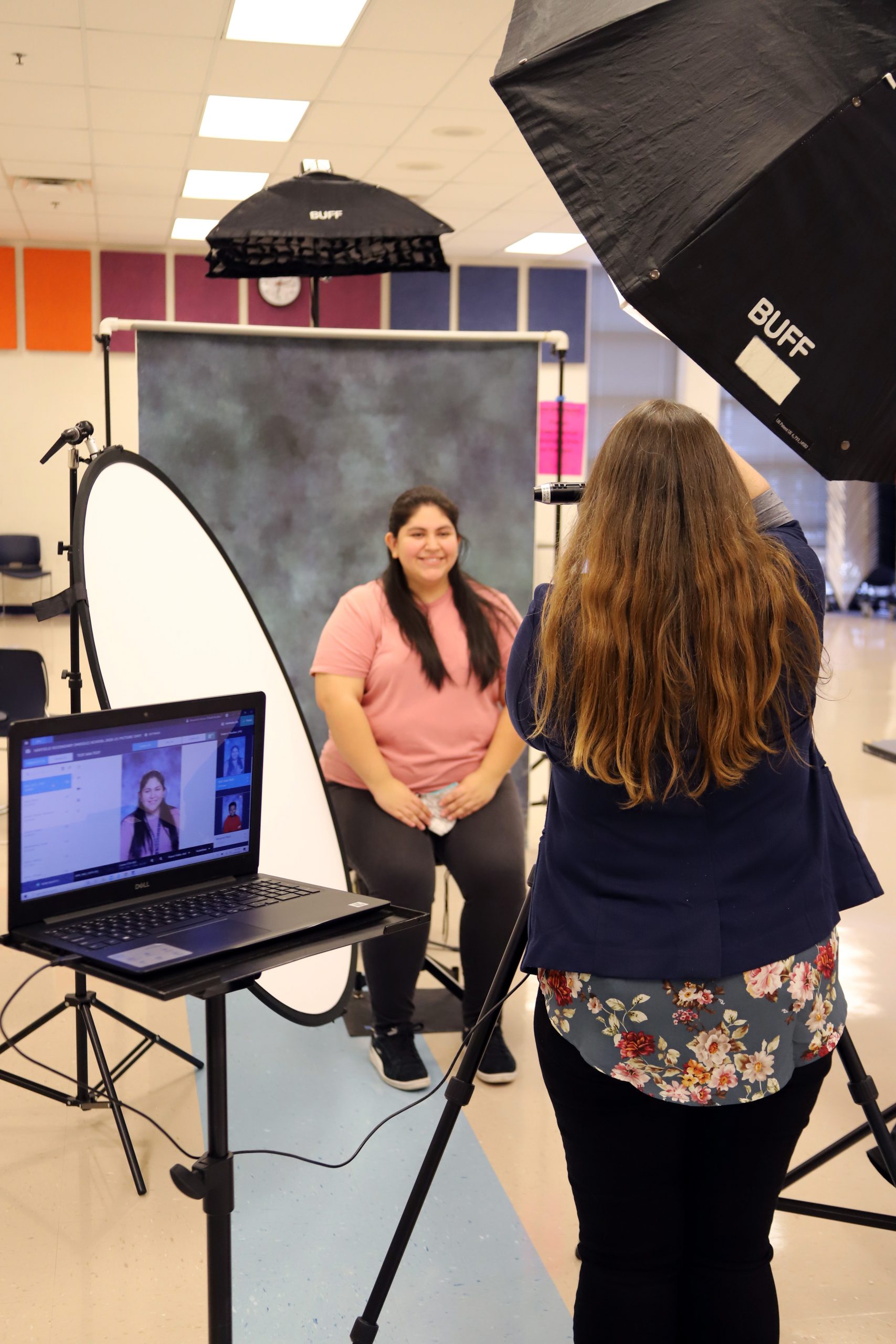
Patent Victory Seen as a Win for Photo Industry
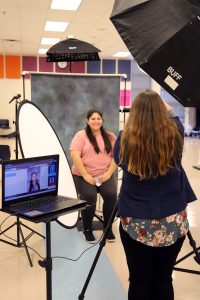
A recent decision by the U.S. Federal Circuit Court of Appeals is being hailed as a big win for the photo industry. The 2-year battle revolves around a company’s attempt to enforce a software patent, contending it owned exclusive rights to a data processing system for grouping photographs together.
The Kim & Lahey Law Firm represented the plaintiff, ImageQuix, a software company that was based in Greenville, SC, until recently moving to Raleigh, NC. ImageQuix is a pioneer in the online photo sales industry and has serviced professional photographers for more than 20 years.
In fall of 2018, Snapizzi, a Washington state corporation, began contacting ImageQuix about its patented image tagging technology (U.S. Patent 8,794,506). ImageQuix had just released Blueprint, their latest photography workflow software that also includes image tagging to sort and organize large volumes of images.
Snapizzi insisted they purchase a license in order to continue offering image tagging. In reviewing the patent with its counsel, Doug Kim, ImageQuix President Alex Kovacevic decided to take the dispute head on. ImageQuix filed a lawsuit asking to the court to hold that Snapizzi’s patent was invalid and not infringed. ImageQuix stated that photo tagging technology was not new to the industry and that the Snapizzi patent was invalid. Snapizzi snapped back with a counterclaim alleging patent infringement.
In December of 2019, the District court ruled the Patent was invalid under the now famous United States Supreme Court 2014 ruling Alice Corp. v. CLS Bank. Alice held that a computer implemented electronic escrow service was an “abstract idea” and therefore ineligible for patent protection under 35 USC § 101. In response, Snapizzi appealed to the Federal Court that hears all patent appeals. Last week, the Federal Circuit affirmed the District Court holding that the Snapizzi patent was invalid.
Rich Scanlon, CEO, ImageQuix, says, “It’s never an easy decision to take on the burden of a long court proceeding, but we felt it was our duty as industry leaders to go on the offensive. This ruling is also vindication for the school photo industry as a whole. We fought back against those who would try to take credit for, and advantage of, the collective innovations our entire industry has invested immense resources in. We can, and should, all share in this victory.”
“We could not stand by and allow innovation to be challenged and stifled. I am proud to be a part of a company that cares and always does the right thing,” says Tim McCain, CRO of ImageQuix and Founder of PhotoLynx.
“From the beginning, we believed that the Snapizzi patent was invalid and that its claims were in violation of the Alice ruling. We’re happy that both the District Court and the Federal Circuit Court of Appeals agreed with us,” says Doug Kim.
Although the Alice opinion did not specify that all software is patent ineligible, the case is widely considered as a decision against software patents or patents on software for business methods. Patent eligibility rules are supposed to keep patents from being issued that cover ineligible subject matter, which the U.S. Supreme Court determined in its Alice decision constitutes the “basic tools of scientific and technological work” so as not to impede innovation and undermine patent laws.
“While Alice introduced hurdles to patenting software, understanding these rules and rulings allows a patent to be written to minimize the risk and even avoid § 101 rejections,” said Doug Kim, a former software programmer and now patent attorney.

